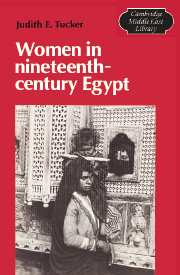Book contents
- Frontmatter
- Contents
- List of illustrations
- Acknowledgments
- List of abbreviations
- Note on transliteration and dates
- Introduction
- 1 Ploughs and shares: women, agricultural production, and property
- 2 Spindles and songs: women in urban occupations
- 3 Private and public life: women and the growth of the State
- 4 Women, resistance, and repression
- 5 The practice of slavery: women as property
- Conclusion
- Appendix: The court records, overview and sample
- Notes
- Glossary
- Bibliography
- Index
Introduction
Published online by Cambridge University Press: 28 October 2009
- Frontmatter
- Contents
- List of illustrations
- Acknowledgments
- List of abbreviations
- Note on transliteration and dates
- Introduction
- 1 Ploughs and shares: women, agricultural production, and property
- 2 Spindles and songs: women in urban occupations
- 3 Private and public life: women and the growth of the State
- 4 Women, resistance, and repression
- 5 The practice of slavery: women as property
- Conclusion
- Appendix: The court records, overview and sample
- Notes
- Glossary
- Bibliography
- Index
Summary
She who trusts men, trusts a sieve to hold water.
Egyptian proverb (AḤmad Taymūr, al-Amthāl al-‘āmmīyah, 3095, p. 514)The history of women in Egypt and the Middle East as a whole has been little studied. In part, such neglect reflects the general state of Middle East historiography: focus on visible political institutions, diplomatic events, and intellectual currents of the high, as opposed to popular, culture long confined the field of inquiry to upper class males at the expense of studying the role those of another class or gender played in the historical process. But even now, as a new generation of historians in the Middle East and West direct their attention to the social and economic history of the region and begin to write the history of social classes – peasants, urban craftsmen, casual laborers – whose history and culture remained obscure or irrelevant to the orientalist scholar, women are usually nowhere to be found, or receive only cursory mention.
Part of the problem surely springs from basic misconceptions about women's history and its relation to social and economic history as a whole, East or West. Women have always been numerically important in human populations, a sufficiently compelling reason perhaps to explore their past, but the full significance of the study of women lies elsewhere. The history of women demands an immediate awareness of a multitude of forces, institutions, and activities which elude analysis at the level of official political institutions, mainstream intellectual movements, or economic overviews; rather, the world of informal networks, popular culture, and the basic forces of production and reproduction define the arena of women's activities and therefore women's studies.
- Type
- Chapter
- Information
- Women in Nineteenth-Century Egypt , pp. 1 - 15Publisher: Cambridge University PressPrint publication year: 1985

